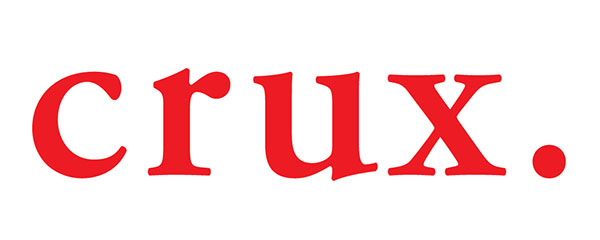By: Tom Butch
Can a fraction be more than a whole?
While perhaps imponderable mathematically, it’s a question that has genuine salience in the world of marketing…especially for those companies that are newly stepping into marketing, or expanding its breadth, as they seek to grow their brand and market presence.
One model that has become increasingly common is a fractional chief marketing officer, through which a company contracts for a predetermined percentage of a consulting CMO’s time. This enables the client company to access the skills of an experienced CMO without the investment required to bring one on to its executive team on a full-time basis. But this general model is, unsurprisingly, nuanced.
First, there can be multiple reasons for bringing on a fractional CMO. A company might want to initiate its marketing efforts by bringing senior marketing perspective to its leadership team; it might want guidance on a specific issue it is encountering or project it is undertaking; or, if a company already has a marketing team in place, it might want to add additional senior-level insight to augment its existing in-house acumen and/or perspective.
Second, the definition of “marketing” necessarily incorporates a range of traditional activities such as branding, advertising and public relations but engages them through an ever-broadening array of content-hungry digital channels, including social media. The traditional activities of marketing are not separable from the burgeoning, real-time channels through which they are delivered, and CMOs’ skills must rise fully to the ever-developing external environment for marketing.
And, third, counsel is critical but without execution, capability its impact can prove more theoretical than quantifiable.
So, what are the critical considerations of an ideal engagement with a fractional CMO? Here are five ground rules:
-
Have a basic (even if not fully defined) sense of what you want to accomplish by bringing on a senior marketer, and a commitment to working together.
You may simply be at a moment where you recognize that your next leg of growth requires that you fully and professionally define your brand and its related messaging; you may want to learn how best to take your message, and value proposition, to the markets and constituencies that matter to you; you may want to understand the nature and requirements for success among the enormous array of communications and distribution channels; you may want all of those, or more. Or you may simply be at a moment where, intuitively, you feel it is time to engage senior-level marketing support. Whatever your motivation, articulate it as best possible to your fractional CMO candidates. It’s then up to them to work with you as a partner and counselor to create a plan that melds your aspirations with their expertise.
-
Make sure the fractional CMO is a cultural fit.
Your fractional CMO will be someone in whom you will need to confide, sharing your vision and even your dreams for your company. You will need to engage a trusting relationship where candor, vulnerability and mutual accountability will be paramount. Make sure the CMO is someone with whom you and your team will work effectively and openly. The fractional CMO should evidence respect for what you and your team have accomplished and where you seek to go, but also able to steer you, confidently but humbly, in directions that they believe are essential to your success. And you, in turn, should be resolute in your vision but flexible to its implementation via the marketing expert you have chosen to engage.
-
Bring the CMO to the executive table.
The fractional CMO will serve you best if integrated into, and contributing to, your company’s decision-making processes, at the highest level. CMOs today most always have seats at the executive table, and are less an extension of the executive office (as they may have been historically) and more a critical part of it. At minimum, your CMO is the person who is most responsible for identifying, perfecting and promulgating consistently your company’s value proposition and creating differentiation in the marketplace. That, arguably, is as important as any other company activity or deliverable, including its products, services or ongoing innovations. (Brand value is, itself, identifiable and calculable.) Fully utilized, your CMO contributes materially to—maybe even crafts—your strategic plan, identifying opportunities to grow market share, access new channels of distribution and disrupt competitors. All of this is possible only when the fractional CMO’s skills are deployed to their full benefit as part of your decision-making processes.
-
Expect much.
If you’ve made the decision to bring on a fractional CMO, you have every reason to have high expectations for what they will deliver. First and foremost, you should expect them to work hard to gain your trust by dedicating themselves to understanding your company and its industry deeply. Only when they do so can they effectively discharge their responsibilities and add value to the organization. We tend to think of marketing in terms of its outputs, but its single greatest input is fully and deeply understanding the company, its markets and its competition. Only when this is in place can marketing become meaningful, and its outputs assert their full value. In terms of those outputs, a basic checklist would include:
-
- Brand building: Identifying your unique value proposition (who you are; how you are different; why you matter) and translating that into succinct, consistent branding that frames and underpins your every interaction with your many constituencies.
- Digital: Website construction and management; search engine optimization and marketing; dynamic social media presence.
- PR and Content Development: Proactive management of media relations; content strategy, creation and placement; thought leadership.
- Advertising and Promotion: Creative executions that assert your brand and products across the many channels through which it can be distributed.
- Data analytics: Analysis of your clients and prospects – their preferences, buying habits, opinion of your company; of your media presence and results; of your competition.
Together, these outputs reflect the toolkit from which marketing value is created. But none of them is particularly useful without a genuine understanding of the company they represent. Beware the marketer who puts form before substance, or wants to create output before investing input.
-
Learn what’s behind the fractional CMO curtain.
Here’s where it gets tricky. Or, as I said at the outset, nuanced. If you’re seeking a fractional CMO only to provide counsel, or to add perspective and experience to an existing in-house team, your search may begin with your assessment of their cultural fit, executive presence and marketing acumen. If, however, you expect the fractional CMO to provide counsel and the span of deliverables listed above, it’s important to understand the resources available to the CMO to execute the enormity of outputs within the marketing sphere. Said more simply, a CMO must have the skills and experience to understand the breadth and complexity of marketing, but will need to engage additional specialist resources to bring marketing deliverables – be they digital, PR, content, social media, advertising or analytics – to life.
This is where the fractional model can break down. Or flourish. No fractional CMO can bring marketing’s full force to bear by themselves. So, if you want to engage and assert marketing’s fullest expression and value, it’s important to know the resources available to the CMO to execute successfully and unleash marketing as an accelerant to your company’s growth.
And, so…Crux
This is where the Crux model stands tall. Each client is assigned an experienced, skilled CMO to serve as its strategic partner, committed to understanding in depth the company and helping to define its competitive position and value proposition. The CMO, working with (actually, as part of) company leadership, develops a strategic marketing plan specific to your needs and then engages the large, experienced Crux team of experts across all marketing disciplines to initiate and sustain it.
I chose to invest myself in this model because, having been a CMO for more than 20 years, and an executive who has drawn on internal and external marketing resources, I believe deeply in marketing’s full value and appreciate the intellectual and implementation resources required to unleash it. And I have not come across a model that accomplishes that feat as thoughtfully, comprehensively, and cost-effectively as does the Crux fractional CMO model: A CMO, part of and backed by a firm of experts in every marketing discipline, creating and executing marketing that elevates your market presence, gives you voice and burnishes your brand across every channel and customer experience.
Everything you need, nothing you don’t. All at a price point less than that required to hire one senior marketer internally. Only then can a fraction become greater than a whole.


